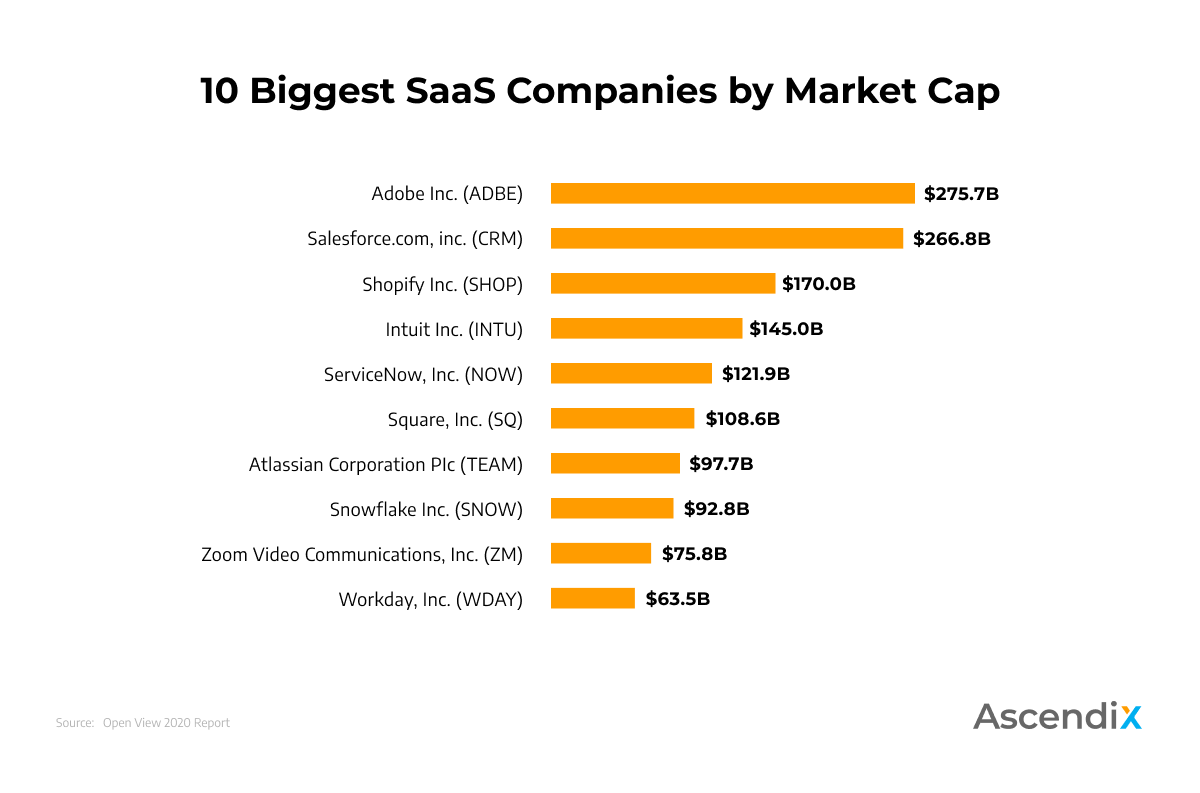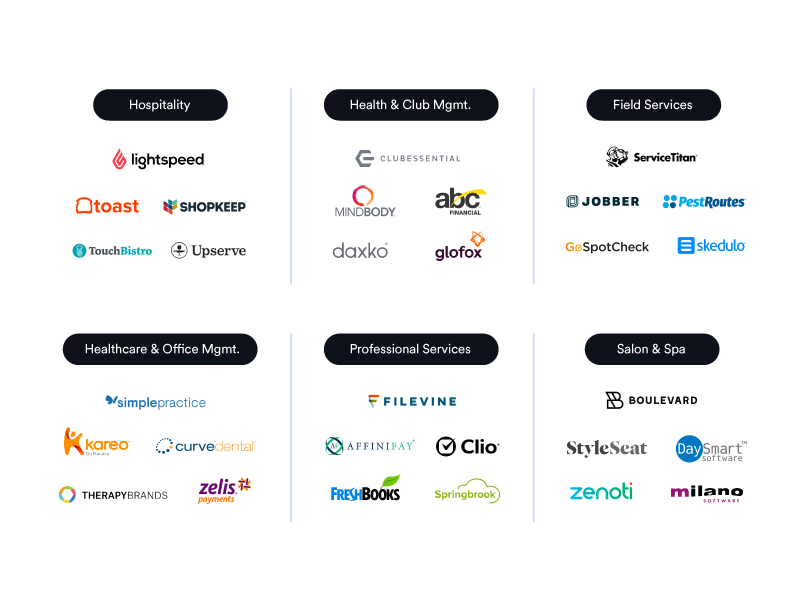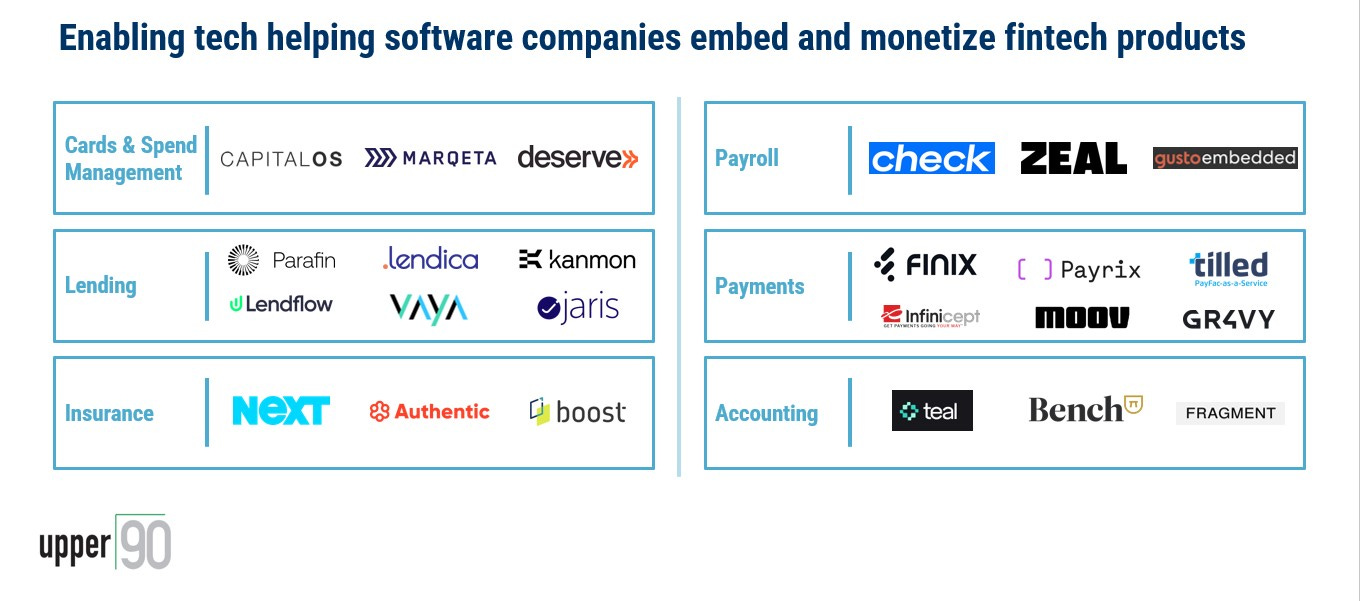Top Vertical SaaS Companies Transforming Industries
The Rise of Vertical SaaS: Catering to Specific Industry Needs
The software-as-a-service (SaaS) industry has exploded in recent years, but a significant portion of this growth comes from vertical SaaS companies. Unlike horizontal SaaS solutions that cater to a broad range of businesses, vertical SaaS platforms are meticulously designed to address the unique requirements of specific industries. This specialized approach allows for deeper integration, enhanced functionality tailored to industry-specific workflows, and a more intuitive user experience for professionals within their niche.
Healthcare: Streamlining Patient Care and Administrative Tasks
The healthcare industry is undergoing a digital transformation, and vertical SaaS companies are at the forefront. Platforms specializing in electronic health records (EHRs), telehealth solutions, and practice management software are streamlining operations, improving patient care, and boosting efficiency. Companies like Epic Systems, Athenahealth, and Teladoc are prime examples, demonstrating the power of tailored solutions to manage complex healthcare data, scheduling, billing, and communication.
Finance: Enhancing Efficiency and Compliance in a Regulated Environment
The financial services sector is heavily regulated, demanding sophisticated software solutions to manage risk, comply with regulations, and maintain accuracy. Vertical SaaS companies are providing specialized tools for investment management, wealth management, lending, and accounting. These platforms offer features like robust reporting, automated compliance checks, and secure data management, empowering financial institutions to operate efficiently while adhering to strict regulatory standards. Examples include firms focused on robo-advising, regulatory compliance software, and loan origination systems.
Real Estate: Connecting Agents, Buyers, and Sellers with Seamless Technology
The real estate industry has seen a significant influx of technology, transforming how properties are listed, marketed, and sold. Vertical SaaS platforms are powering this shift, offering solutions for property management, CRM for real estate agents, and virtual touring tools. These platforms streamline the complex processes involved in property transactions, from lead generation and marketing to closing and post-sale management. Think of companies specializing in property management software, digital marketing tools for realtors, and virtual staging platforms.
Education: Personalized Learning and Improved Administrative Efficiency
The education sector is increasingly adopting technology to personalize learning experiences and manage administrative tasks more efficiently. Vertical SaaS companies are delivering solutions such as learning management systems (LMS), student information systems (SIS), and educational assessment platforms. These platforms improve student engagement, provide teachers with valuable data-driven insights, and streamline administrative workflows, contributing to a more effective and efficient educational environment. Examples include companies offering customized LMS solutions, online assessment tools, and platforms for managing student data.
Construction: Optimizing Project Management and Collaboration
The construction industry, known for its complexity and fragmented workflows, is benefiting significantly from vertical SaaS solutions. These platforms offer project management tools, collaboration software, and cost estimation capabilities, improving communication, tracking progress, and managing resources more effectively. Specialized platforms cater to specific aspects of construction, from bidding and estimating to scheduling and risk management, ultimately contributing to on-time and on-budget project completion. Examples include companies offering project management software tailored to construction projects, as well as platforms focused on safety and risk management.
The Future of Vertical SaaS: Continued Specialization and Integration
The success of vertical SaaS companies highlights the growing need for specialized software solutions that address the unique challenges and opportunities within specific industries. As technology continues to evolve, we can expect to see even more specialized platforms emerge, with increased focus on integration and data-driven insights. The future of vertical SaaS lies in its ability to provide increasingly sophisticated and tailored solutions that empower businesses to achieve greater efficiency, innovation, and growth within their respective sectors. Read more about the best vertical SaaS companies.
Innovative SaaS Transforming Specific Industries
Revolutionizing Healthcare with AI-Powered Diagnostics
The healthcare industry is ripe for disruption, and SaaS solutions are leading the charge. AI-powered diagnostic tools are transforming how doctors analyze medical images, leading to faster, more accurate diagnoses. These SaaS platforms leverage machine learning algorithms trained on vast datasets of medical images to detect anomalies like tumors or fractures with remarkable precision. This not only improves patient outcomes but also streamlines workflows, allowing doctors to spend more time with patients and less time poring over scans. The integration of these tools into existing hospital systems is relatively seamless, offering a quick return on investment for healthcare providers. Furthermore, the ability to access these tools remotely is expanding healthcare access in underserved communities, democratizing access to high-quality diagnostics.
Streamlining Supply Chains with Predictive Analytics
Supply chain management is a complex undertaking, often fraught with unforeseen disruptions. Innovative SaaS solutions are using predictive analytics to forecast demand, optimize inventory levels, and mitigate risks. These platforms integrate data from various sources, including sales forecasts, weather patterns, and geopolitical events, to create a dynamic picture of the supply chain. By anticipating potential bottlenecks and disruptions, businesses can proactively adjust their strategies, minimizing delays and reducing costs. The real-time visibility provided by these SaaS platforms empowers businesses to make informed decisions, leading to increased efficiency and resilience in the face of uncertainty. This is particularly crucial in industries like manufacturing and logistics, where even minor disruptions can have significant ripple effects.

Automating Customer Service with Intelligent Chatbots
Customer service is a crucial aspect of any business, and SaaS solutions are revolutionizing how companies interact with their customers. Intelligent chatbots are becoming increasingly sophisticated, capable of handling a wide range of customer inquiries with remarkable accuracy and efficiency. These AI-powered chatbots can provide instant support, 24/7, answering frequently asked questions, resolving simple issues, and escalating complex problems to human agents. This not only improves customer satisfaction but also frees up human agents to focus on more complex tasks, improving overall productivity. The ability to personalize interactions and learn from past conversations further enhances the effectiveness of these chatbots, making them an indispensable tool for businesses of all sizes.
Enhancing Education with Personalized Learning Platforms
The education sector is undergoing a significant transformation, driven by the rise of personalized learning platforms. These SaaS solutions leverage data analytics to understand individual student needs and tailor educational content accordingly. By tracking student progress and identifying areas where they struggle, these platforms can provide targeted support and resources, ensuring that every student receives the help they need to succeed. This personalized approach is proving to be particularly effective in improving learning outcomes, especially for students who may require additional support or have diverse learning styles. Furthermore, these platforms offer valuable insights to educators, allowing them to adapt their teaching methods and curriculum to better meet the needs of their students.
Boosting Productivity with Project Management Software
Effective project management is essential for success in any industry, and innovative SaaS solutions are transforming how teams collaborate and manage their projects. These platforms provide a centralized hub for communication, task management, and progress tracking, enabling teams to work together seamlessly, regardless of their location. Features like Gantt charts, Kanban boards, and real-time collaboration tools enhance transparency and accountability, ensuring that projects stay on track and within budget. The integration of these platforms with other business tools further streamlines workflows, improving overall productivity and reducing the risk of project failure. This is especially crucial for businesses operating in dynamic and fast-paced environments.
Transforming Finance with Robotic Process Automation (RPA)
The financial sector is increasingly adopting Robotic Process Automation (RPA) through SaaS platforms to automate repetitive tasks, reducing costs and improving accuracy. RPA software can handle tasks such as data entry, reconciliation, and invoice processing, freeing up human employees to focus on more strategic activities. These automated processes significantly reduce the risk of human error, leading to improved accuracy and compliance. Furthermore, RPA solutions can integrate seamlessly with existing financial systems, minimizing disruption and maximizing efficiency. This increased efficiency allows financial institutions to process transactions faster, improve customer service, and gain a competitive edge in a rapidly evolving market.
Improving Real Estate with Virtual Tours and Property Management Tools
The real estate industry is leveraging SaaS to enhance both the buying and selling processes. Virtual tours are becoming increasingly popular, allowing potential buyers to view properties remotely, saving time and effort for everyone involved. Meanwhile, property management software simplifies the administration of rental properties, streamlining tasks such as tenant communication, rent collection, and maintenance requests. These SaaS solutions are proving invaluable in a market where efficiency and convenience are paramount, allowing real estate professionals to manage their portfolios more effectively and improve the overall customer experience. This improves efficiency and extends reach for both buyers and sellers.



